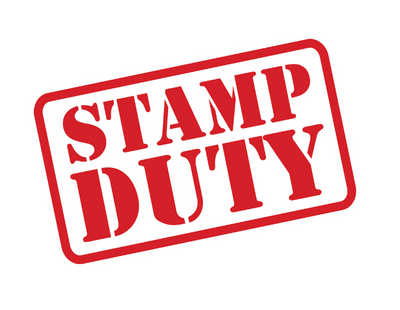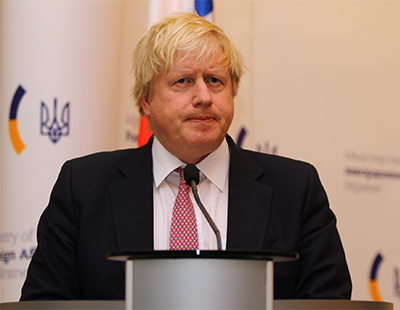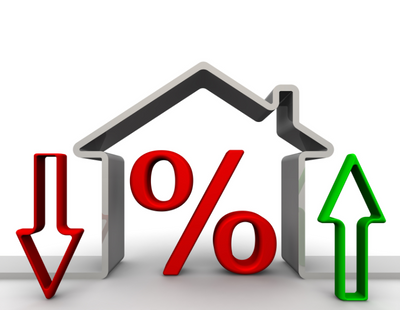A proposed cut in stamp duty by the Westminster government would be a welcome boost to homebuyers and would need to be matched in Scotland according to a leading property firm.
DJ Alexander Ltd - the largest estate and letting agency in Scotland - says the speculation that the Conservative government is considering cutting stamp duty ahead of next year’s General Election would be welcomed by buyers and the property sector at a time when there was a softening of demand in the market.
Any reduction in the rate of stamp duty or the level at which it was levied would be a boost to homebuying at a time when sales volumes are falling and prices dipping. While Scotland has been less severely impacted by the recent interest rate rises it is clear that house buying activity is likely to slow in the coming months and years.
Scotland has a separate purchase tax for home buying which - if there is a stamp duty cut in England and Wales - would need to be replicated north of the Border, insists the agency.
Under the current charging system through the land and buildings transaction tax (LBTT) Scots already pay substantially higher costs for first time buyers who start to pay tax at £175,000 compared to £425,000 in England and Wales.
First time buyers in England and Wales pay nothing on a purchase price of £250,000 whereas in Scotland they are liable for £1,500.
For buyers who’ve already owned a home Scots start to pay 2.0 per cent from £145,001 to £250,000 whereas in England there is no stamp duty on the first quarter of a million. From £250,000 to £325,000 in Scotland there is a 5.0 per cent charge whereas this extends to £925,000 south of the Border.
In Scotland all homes face a 10 per cent charge on prices between £325,001 to £750,000.
The result is a much greater charge on buying a home in Scotland than in England. A £500,000 home in Scotland has £23,350 charged in LBTT whereas an identically priced property in England would only be charged at £12,500.
David Alexander, chief executive of DJ Alexander Ltd, explains: “It is clear that the proposal to reduce stamp duty is politically motivated, but it actually makes sense in addressing a slowing market. England, in particular, has experienced a quite substantial dip in sales volumes over the last year dropping 42% between July 2022 and June 2023.
“The housing market in Scotland has not been impacted nearly so much with sales volumes dropping just 4% over the same period but it is clear that the market is going to face reduced activity and lower prices in the coming months. Therefore, a policy which made it cheaper to buy a home would be welcomed north and south of the Border.”
He continues: “Of course, even though Scotland has not been as severely impacted by the interest rate rises and its’ housing market has remained quite buoyant any change to stamp duty in England and Wales would have to be replicated in Scotland. To ensure there is a fair market it would be inconceivable to have a widening of the tax burden for homebuyers north of the border compared to their English counterparts.
“As it is Scots are unfairly punished by the current levels of LBTT which punitively impact first time buyers and anyone purchasing a property worth more than £325,000. Given that the average price of all homes sold in Edinburgh and East Lothian is more than £325,000 it seems unfair that these purchases currently attract a 10 per cent levy.”
Stamp Duty reform was back in the news following the Tory defeat at two English by-elections last week; the reports, in The Times and other newspapers, suggested the changes would be included in the Conservative General Election manifesto rather than the more-immediate Autumn Statement next month.

















%20-%20IMAGE%20Client%20Accounting%20%E2%80%93%20what%20are%20your%20options.jpg)


.png)
.png)
.png)
%20(002).png)






%20(002).jpg)













Join the conversation
Jump to latest comment and add your reply
Strange as in 2020 David Alexander was quoted in this publication saying the opposite '“It’s vital … that there are not too many giveaways in the Budget aimed at kickstarting the housing market in London. A £500,000 starting threshold for any Stamp Duty and Land Tax, for example, would be helpful in the over-heated market of London and the South East but would create a two tier market which would effectively collapse the Scottish property market.” - so will it collapse the Scottish market or promote it? Maybe in 2024 David will make up his mind - only kidding David :).
Great idea, look what happened as a result of the Covid stamp duty holiday. House prices just went up by 10%, and this will mostly likely happen again if stamp duty is cut. A stamp duty cut is pointless if all the resulting stimulus does is increase house prices and cancel out the intended benefit.
Demand side stimulus would be grotesque short term thinking.
It's a supply side issue, and has been for decades.
We are now in the world of the fifty year mortgage. Mortgage terms have lengthened alongside supply failing to keep up. Over thirty years terms have had to increase to manage affordability. At the same time and over the same period home prices versus income levels have doubled.
How far do we let this run?
It's time to sort the supply side out. It's a restricted market in terms of supply. It's darn near a cartel, and the evidence is there in shareholder and director returns.
Profits are great, in healthy markets. This is not a healthy market (talking 30years not last 9months).
A package of measures designed to release land, stimulate small builder entry into the market place and time limit planning permissions for developments. Amongst much more.
The equation is simple. VERY simple. When supply doesn't keep up with demand, prices rise. And will do so for as long as the conditions remain.
No demand side stimulus.
Gov, you need to address supply. That means rapid permissions, rapid building on those permissions and facilitation of small builders to enter the market place building homes.
The above comparisons between England and Scotland are specious: generally, property values are much lower in Scotland. An accurate comparison would be between the stamp duty payable on an average thread-bed semi in Scotland and an average three-bed semi in England.
Got to dispense with these botox type interventions, every time there is a wrinkle in what are normal market cycles. There are a few hundred thousand buyers who arent thankful (whether they know it or not) that they were mesmerised into buying a property in 2021 with some perceived tax saving, had signficantly higher acquistion costs as everyone took advantage in supply chains and of course overnight house price inflation that has now been trimmed off in recent months, only to come off their 2 year fixed rates this year into a remortgage nightmare.
Please login to comment